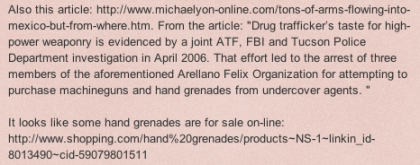It’s a question I’ve wondered about for a while, but never really had a good answer for. A lot of people say they want smaller government, and more freedom, but that never seems to translate into the people in power making that happen. Why? I didn’t really understand it until I started involving myself in local politics through NRA’s electoral apparatus. I am definitely more of an observer more than a major player, in most things, and that’s true of my involvement in this endeavor as well. I am relatively uninterested in the elbow rubbing, social, or even civic aspects of political involvement, so much as figuring out the game and coming up with strategies to beat it. While I’ve learned a few things in this regard, the big thing I’ve learned is that the game is eminently beatable, and what prevents it from happening is a lack of players willing to participate in the game.
SayUncle linked yesterday to an article that sort of hints at what the problem is, though the author is a lot angrier than I am. The problem, essentially, is that there’s been no political constituency for liberty. Note that there’s a difference between a constituency, which is a lot of people saying they want more of it, and a political constituency, which are people saying they want liberty, and who are building a political structure to accomplish it. The Tea Party, right now, is mostly a constituency, but who is showing early signs of evolving into a political constituency.
I say evolving, because whether the Tea Party movement is for real, or a flash in the pan, depends entirely on what happens on November 2nd, and a lot more on what happens after. This is not because we’re about to elect the saviors of our Republic, and can happily go back to sleep, knowing the GOP will take care of the problem. That’s what happened in 1994, and the GOP took care of jack. But this year is somewhat different. 1994 did not have the levels of grassroots anger we’ve seen manifested through the Tea Party movement. This is something truly new. New and familiar or not, I’m not optimistic that a movement based purely on grassroots anger will stay angry long enough to seriously change the political dynamic. The question, after November 2nd, is whether or not the Tea Party movement will merely remain a vessel of grassroots anger, or will evolve into a political constituency.
What does a political constituency look like? Well, first and foremost, it creates a structure to enable the two fundamentals of electoral politics, money and votes. If you don’t wield either of those two things, you can’t change anything. The Tea Party movement has shown it can turn its anger into fundraising, and we’ll see how well it turns it into votes, but Tea Party victories are going to energize the left eventually, and a lot of newly elected politicians are going to disappoint us. What happens when the anger goes away? What happens when people who support smaller government decide things are getting better? To me that’s the real question. Can the Tea Party maintain positive momentum toward liberty even when times are better? If the answer is yes, this might be a game changer.
One thing that’s particularly bothered me about liberty loving people is how hard they think it is to change things — like a finger of lightning came down from the heavens and etched the New Deal, forever unalterable, in stone. Having participated in several elections now in the role of a volunteer coordinator, the one thing I’ve been struck with is how little it would take to fundamentally alter the political dynamic in this county. The number of people with serious influence over your local political apparatuses is actually quite small, and a lot of those individuals with influence honestly don’t bring much to the table (in either money, votes, or good ideas). If you had twenty motivated individuals rally around a liberty related issue, who were willing to give a little bit of time, or who could raise money, you would have a serious effects on the politics in your county. Whether it’s a Democratic or Republican district wouldn’t matter a whole hell of a lot, it would just be a matter of adjusting your tactics and expectations based on what you had to work with. All politics is local, when you get down to it. Multiply that across every county in the country, and suddenly things start to look a lot different nationwide.
So why hasn’t it happened for liberty issues? Because most people who have a strong understanding of what liberty is have better things to do. I don’t say that with any condescension. I can think, off the top of my head, about two dozen things I’d rather do than volunteer for an election, and at least as many things I’d rather spend my money on than political donations. I’d rather rub elbows with a dog than most politicians. It comes down to what you really value, and I’m not going to bemoan anyone’s choices there. But whether the truth hurts or not, people who love liberty haven’t put enough value on it to do what it takes to make a political constituency for it. That’s why Liberty loses.


